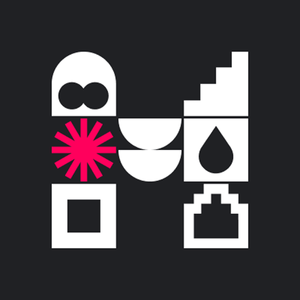
“Sometimes Friction Is a Good Thing”

Emma Robertson is a seasoned pro in helping both established and emerging UK companies make sense of digital disruption. The CEO of ENGINE Transformation, the new team within ENGINE that specialises in digital transformation, data and insight, has has worked on digital transformation projects for market-leading companies like Homebase, Argos, eBay, BT and Tesco, helping them re-orientate their businesses around the ever-changing customer.
LBB's Alex Reeves chatted with Emma to find out how digital disruption has evolved over the last decade and how advertisers have convinced women that they don’t like the taste of beer.
LBB> What have been some of the notable digital transformation projects or campaigns you’ve worked on recently?
Emma> Since we began working with clients on digital transformation the landscape has changed beyond recognition – in fact when we began in the late ‘90s digital transformation was not a phrase anyone used (and now you can’t open a blog or conference agenda without being bombarded by it). At that time the questions were much more basic, but no less important – how important is digital going to be, do I need a transactional website, will mobile really take off as a channel?
I was fortunate enough to work with Argos through the 2000s and beyond, which truly was a transformation and set the standard for multichannel commerce. When we started working with Argos digital was only 12% of their business, anchored in a twice-yearly catalogue – when we finished the programme it was 42% and the business was the first multichannel retailer. The journey was amazing, with client and consultancy working hand in hand and staying just ahead of the curve in a market that was making itself.
Recently we have been working with clients on a range of challenges. A really interesting programme was our work with the Remote Gambling Association, who are charged with the task of supporting both the gambling industry and ensuring problem gamblers are protected online. We created a digital technology solution that enables individuals to self-exclude from online gambling sites – sign up once and 100s of online sites will not allow the customer to place a bet. The technology and data challenge was unique, and had to provide a robust solution for users -at the same time as not interrupting the online experience of the 99.99% of bets that continue to be placed without interruption. The solution was never designed to replace the proper support infrastructure that problem gamblers need – and a determined gambler will always find a way to get around a system. However, it does introduce a break point and some deliberate friction into an increasingly automated gambling process – with over 50,000 users registered in the UK the response from individuals has been amazing, and the team who worked on it have been really touched by understanding the positive impact it is having on some people’s lives.
LBB How have those clients' businesses evolved over the past decade?
Emma> Clients have evolved and matured immeasurably in the last 10 years – reducing reliance on agencies and consultancies and bringing much more of the capability in house. There is still a strong role for clients getting external help, but it is now much more integrated – less about outsourcing digital, and more about harnessing technical, strategic and creative talent externally.
Interestingly in 2019 there is a resurgence of clients wanting to use digital as a solution for channel shift – i.e. moving high volume low value transactions and calls to digital rather than servicing face to face or through contact centres. This was a really hot topic in 2010/12 before the agenda became more dominated by innovation and customer experience – and the all-important omnichannel. But now channel shift and digital for efficiency is back on the agenda.
LBB> Where do you usually start strategically when it comes to addressing these kinds of problems?
Emma> Whilst all clients and projects are unique, there are some continuous threads that run through all of our projects and can be common pitfalls to a successful transformation.
We have designed an ecosystem model for working on digital – and increasingly data – transformation. The principle is to recognise that digital cannot be delivered in a vacuum, and although the task may be focused in one area (like a new proposition or technology re-platform), the success of it is dependent on balancing the ecosystem: Is the Strategy understood and a clear red thread to guide decision making, What is the Culture, and can a new solution or service be supported in the current Organisation; Is the Technology fit for future and supported by the whole business not treating IT as a service provider; What is the Data foundations & architecture that the programme is built on, and will it both drive and measure performance; Who is the Customer, are their needs understood and can their expectations be met?
As a starting point for all projects there are two places we always start in parallel 1. Strategy 2. Customer. When we encounter clients who have stalled in transformation – or sadly often invested a lot of £ without a transformative impact – it is these two areas that are often lacking focus. All too often the transformation has overtaken the objective, without reference to the red thread of strategic goals or customer needs.
LBB> Some of these projects involve going really deep into a business and working with departments beyond marketing - how do you get everyone involved?
Emma> Within ENGINE Transformation we are frequently working outside of the marketing department – working with technology teams, data and research functions, or HR for our employee experience work. As digital has grown it has cut across traditional structures and linear operating models, and our work in digital transformation is always cross-functional, engaging with multi-disciplinary teams in agile collaborative teams. It is one of our key recommendations for organisations wanting to be fit for the future – that digital (and data) needs to be integrated and aligned to the whole business, not off to one side or treated as a special project. More recently we have been working with marketing departments in some of our biggest clients to help them get fit for the future – helping them answer what is the right shape for a marketing department in a world of digital? The answer is a fluid and flexible one, and the solution is always less about an organisational structure and more about the operating model, culture and ways of working that go around it. When we worked with Santander on Marketing 4.0 the outcome was to introduce agile marketing into the organisation, embracing more collaboration and empowerment to the team.
LBB> What have been some of the most key insights you've reached in recent years?
Emma> Research and data are a core part of what we do – we have a research and insights practice within ENGINE Transformation that conducts customer and market research, as well as employee engagement. All of our service design work starts with a research phase to baseline who the customer (or user) is, and the context they exist in.
A couple of interesting or surprising insights over recent years:
- Sometimes friction is a good thing – for one project for the Ministry of Justice we designed a seamless digital experience which research found to be “too easy”; the digital service was taking out a Lasting Power of Attorney, and users felt that more friction creating moments to reflect were what was needed.
- Advertisers have convinced women that they don’t like the taste of beer – even though taste buds are gender neutral and there is no difference on soft drinks, when it comes to beer the market has established such a strong context it has overcome physiology with psychology (and is the reason that no amount of pink beer launches will help).













